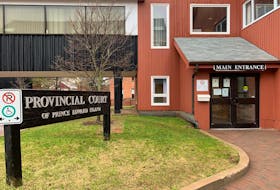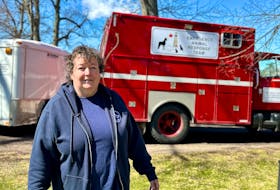High up among the list of barriers to women being able to escape abuse is access to housing, and Heather Byrne says there’s not enough of it in the Halifax area.
Byrne is the executive director of Alice House, a women’s shelter, counselling, and support centre in Dartmouth and contributor to the Home for Good 2020 study, which found several barriers that exist and limit women’s access to housing options that are both safe and affordable within Nova Scotia.
Byrne says these findings, coupled with a housing vacancy rate in Halifax of less than two per cent and the COVID-19 pandemic, show housing options are more limited than ever.
“Housing that is both safe and affordable is key – it allows women to navigate the rest of the process. Leaving when you know it’s not available is not really possible,” she says.
Why leaving is not easy
Housing is but one of the many barriers to leaving that women in abusive situations face, according to Byrne. A multitude of barriers that make it difficult to leave, such as their safety, limited incomes, children, and other reasons.
“By the time she leaves, the amount of courage and navigation she’s had to muster up, especially with children, is beyond what many can comprehend,” says Byrne.
This is why Byrne says housing is key, as it allows women to navigate the rest of the process.
As women are often their children’s primary caregiver, incomes are often limited or nonexistent. Byrne says this means when housing is not readily available, it puts a woman in a position of having to choose between homelessness and a violent household.
“This isn’t a position anyone should find themselves in, but women are finding themselves in it more and more,” she says.
When these factors are combined with Halifax’s current housing crisis and limits that COVID-19 has placed on shelter occupancies, Byrne says it results in less housing availability and a backed-up shelter system.
Pandemic impact
YWCA advocacy, research, and new initiatives manager Charlene Gagnon says the organization has also witnessed how the pandemic continues exacerbating an already-strained housing system.
The YWCA’s December 6th Fund – a microloan program that supports women fleeing abuse – saw a big increase in the number of women reaching out for support in 2020, which Gagnon says is due to the lack of affordable housing and explosion of Halifax’s real estate and rental markets.

She says this situation has made it difficult for the YWCA and other housing organizations to find not just adequate housing, but any available housing options, to use as subsidized rentals.
“The crisis and pandemic are both impacting organizations’ ability to access market-rent apartments and housing stock. It’s becoming challenging for us as service providers to find units to place people within,” she says.
The Transition House Association of Nova Scotia provincial co-ordinator Shiva Nourpanah says housing data shows that the stock of affordable housing has declined across Nova Scotia since the 1990s.
She says people and organizations are facing this problem not just in urban centres like Halifax and Dartmouth, but also across rural Nova Scotia where, along with housing, women also lack access to affordable transportation, childcare, and employment opportunities.
Nourpanah says a lack of access to these services, along with the pandemic’s disproportionate impact on women, makes women less able to leave their abuser.
“Being pushed back into financial vulnerability can lead to violence,” she says. “These factor into women’s ability to escape domestic violence.”
The fix to this problem is a complex one, according to Byrne, but could start with a simple answer: more housing, with Alice House alone needing another 18 to 20 safe house units to support women fleeing abuse.
She says when capacity is increased, more women can access housing and counselling services to help guide them through an incredibly dangerous and complex journey.
“The need for this specialized supportive housing is great right now, especially due to the pandemic,” says Byrne. “The need has grown greater due to COVID-19 and our housing needs to be responsive to that.”
Family Violence Helplines:
Newfoundland and Labrador: This province-wide, toll free number (1-888-709-7090) will detect the region where the caller is located and immediately connect them with one of ten transitions houses that are part of the Transition House Association of Newfoundland and Labrador.
Nova Scotia: If you are seeking help or are looking for information about abuse, you can call the Transition House Association of Nova Scotia’s 24-hour toll-free line:(1-855-225-0220)
P.E.I: If you or someone you know needs help, phone the Anderson House crisis line(1-800-240-9894). Outreach Services are still available across the province, as well, and calling the crisis line is the best way to get connected to outreach. All calls are toll-free, anonymous and confidential.









